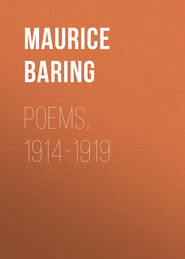По всем вопросам обращайтесь на: info@litportal.ru
(©) 2003-2024.
✖
Overlooked
Настройки чтения
Размер шрифта
Высота строк
Поля
"Except younger."
"She is just as beautiful now, at least she could be – "
"If someone told her so."
"Yes, if someone thought so. Telling wouldn't be necessary."
"Perhaps someone will."
Mrs. Summer said it was extremely unlikely she would ever meet anyone abroad who would be the kind of man.
I said I thought life was a play in which every entrance and exit was arranged beforehand, and the momentous entrance and the scène à faire might quite as well happen at Haréville as anywhere else.
Mrs. Summer made no comment. I thought to myself: "She knows about Kranitski and doesn't want to discuss it."
"The man who marries Jean would be very lucky," she said. "Jean is – well – there is no one like her. She's more than rare. She's introuvable."
I said that Rudd thought she would never marry anyone.
"Perhaps not," she said, "but if Mr. Rudd is right about her he will be right for the wrong reasons. Sometimes the people who see everything wrong are right. It is very irritating."
I asked her if she thought Rudd was always wrong.
"I don't know," she said, "but he would be wrong about Jean. Wrong about you. Wrong about me. Wrong about Princess Kouragine, and wrongest of all about Netty Lennox. Perhaps his instincts as an artist are right. I think people's books are sometimes written by someone else, a kind of planchette. All the authors I have met have been so utterly and completely wrong about everything that stared them in the face."
I asked whether she liked his books.
Yes, she liked them, but she thought they were written by a familiar spirit. She couldn't fit him into his books.
"Then," I said, "supposing he wrote a book about Miss Brandon, however wrong he might be about her, the book might turn out to be true."
She didn't agree. She thought if he wrote a book about an imaginary Miss Jones it might turn out to be right in some ways about Jean Brandon, and in some ways about a hundred other people; but if he set out to write a book about Jean it would be wrong.
"You mean," I said, "he is imaginative and not observant?"
"I mean," she said, "that he writes by instinct, as good actors act."
She said there was a Frenchman at the hotel who had told her that he had seen a rehearsal of a complicated play, in which a great actress was acting. The author was there. He explained to the actress what he wanted done. She said: "Yes, I see this, and this, and this." Everything she said was terribly wide of the mark, the opposite of what he had meant. He saw she hadn't understood a word he had said. Then the actress got on to the stage and acted it exactly as if she understood everything.
"I think," she said, "that Mr. Rudd is like that."
I asked Mrs. Summer if she knew Kranitski.
"Just a little," she said. "What do you think about him?"
I said I liked him.
"He's very quick and easy to get on with," she said.
"Like all Russians."
"Like all Russians, but I don't think he's quite like all Russians, at least not the kind of Russians one meets."
"No, more like the Russians one doesn't meet."
"Tolstoi's Russians. Yes. It's a pity they have such a genius for unhappiness."
I said I thought Kranitski did not seem unhappy.
"No, but more as if he had just recovered than if he was quite well."
I said I thought he gave one the impression that he was capable of being very happy. There was nothing gloomy about him.
"All people who are unhappy are generally very happy, too," she said, "at least they are often very…"
"Gay?" I suggested.
She agreed.
I said I thought he was more than an unhappy person with high spirits, which one saw often enough. He gave me the impression of a person capable of solid happiness, the kind of business-like happiness that comes from a fundamental goodness.
"Yes, he might, be like that," she said, "only one doesn't know quite what his life has been and is."
She meant she knew all too well that his life had not been one in which happiness was possible.
I agreed.
"One knows so little about other people."
"Nothing," I said. "Perhaps he is miserable. He ought to marry. I feel he is very domestic."
"I sometimes think," she said, "that the people who marry – the men I mean – are those who want the help and support of a woman, women are so far stronger and braver than men; and that those who don't marry are sometimes those who are strong enough to face life without this help. Of course, there are others who aren't either strong enough or weak enough to need it, but they don't matter."
I said I supposed she thought Kranitski would be strong enough to do without marriage.
"I think so," she said, "but then, I hardly know him."
"Does your theory apply to women, too?" I asked. "Are there some women who are strong enough to face life alone?"
She said women were strong enough to do either. In either case life was for them just as difficult.
I asked if she thought Miss Brandon would be happier married or not married.
"Jean would never marry unless she married the right person, the man she wanted to marry," she said.
"Would the person she wanted to marry," I said, "necessarily be the right person?"
"He would be more right for her, whatever the drawbacks, than anyone else."











